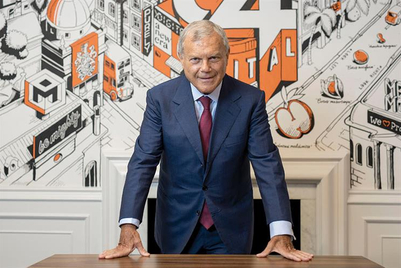
The big six agency groups have an unusually high exposure to the world economy because they have built vast, international networks to serve multinational clients over the past three decades.
There is never a good time for economic uncertainty to strike but some of the holding companies look vulnerable at this moment. Four of the big six groups – WPP, Publicis Groupe, Dentsu and Vivendi’s Havas – reported declining organic revenue in 2019. It was the third year of declining sales for WPP but it was no longer the worst performer in the peer group. Publicis Groupe took the wooden spoon as revenues went sharply into reverse with a 4.5% decline in the last three months of 2019.
Only Interpublic and Omnicom grew in 2019, as Michael Roth and John Wren, their respective bosses, maintained their strong record of recent years, despite being the oldest and longest-serving of the agency chiefs.
The problems facing the holding-company sector have been well known for several years: advertisers are battling digital disruption and want faster, cheaper, creative work to suit the fast-turnaround nature of the online world, as demand wanes for 30-second TV ads. Marketers are bringing some services in-house, and tech platforms are selling directly to clients. Management consultants are also disintermediating agency groups by offering to manage the whole customer experience for brands, not just their advertising and marketing.
In addition, the holding companies themselves have become sprawling and complex. Some are struggling to adapt to a new business environment where agility and flexibility matter more than having large, fancy offices and other fixed costs.
Trust and transparency in media-buying is also a lingering issue. It is striking that the decline in the fortunes of some of the global agency groups followed the 2016 investigation by the Association of National Advertisers into "non-transparent" practices by US media agencies.
If the diagnosis is reasonably clear, the cure for the holding companies is less obvious. Cost-cutting is not the way to grow, although we can expect more efficiencies: merging underperforming agency brands, moving staff into shared buildings, finding cheaper locations (near-shoring and off-shoring) and merging IT and finance functions.
Growth must be the priority for the agency groups. That means becoming simpler, leaner, more agile, more consultative, more tech-enabled and, yes, more creative – with a focus on higher-value and premium services.
The future looks good for those businesses that are willing to change. Advertising, media and marketing is a growing sector (leaving aside any short-term impact from coronavirus) and many of the world’s biggest companies are digital media companies.
The challenge for the agency groups is that they aren’t getting their "fair share", as Mark Read, WPP’s chief executive, puts it. He wants WPP to diversify. "The communications business is a good business but it’s a business that WPP needs to break out of," he told last month’s investor presentation. Read talks of clients facing a "broader" set of challenges. "They need a partner that can help them to figure out not just how to communicate with their customers but how to create experiences that they value, how to sell online and how technology is changing and empowering marketing," he argues.
But reshaping a holding company to become more like a joined-up group to reflect what clients want is difficult, especially in the glare of the quarterly reporting spotlight. If poor trading conditions persist, radical evolution may not be enough. Revolution could be on the cards in a sector that has missed out on the large-scale M&A that has happened in so many other industries.
An upsurge of activity in the independent agency sector in the past 12 to 24 months is a sign of optimism. Agencies thrive on entrepreneurs with creative vision and a willingness to take risks.
Rob Pierre, founder of digital agency Jellyfish, which has just sold to French group Fimalac, thinks all the smartest players – the big agency groups, the consultancy giants and the new wave of independents – "are all trying to get to same place" in the race to build a marketing services business that is fit for the future.
The holding company groups still have advantages. "They’ve got money, they’ve got talent, they’ve got experience, they’ve got footprint. They’ve got a lot of things that are in their favour," Jerry Buhlmann, global chief executive of Dentsu Aegis Network until 2018, says. "It’s all about execution."
Buhlmann founded BBJ Media in his youth and has returned to his entrepreneurial roots by joining performance marketing upstart Croud as chairman. "It takes courage to be an entrepreneur," he says admiringly of Croud’s co-founders.
Creating an environment that encourages more entrepreneurial behaviour is one way that agency groups can reignite growth.


.jpg&h=334&w=500&q=100&v=20250320&c=1)
.jpg&h=334&w=500&q=100&v=20250320&c=1)
.jpg&h=334&w=500&q=100&v=20250320&c=1)


.png&h=334&w=500&q=100&v=20250320&c=1)
.png&h=334&w=500&q=100&v=20250320&c=1)





.jpg&h=268&w=401&q=100&v=20250320&c=1)




.png&h=268&w=401&q=100&v=20250320&c=1)